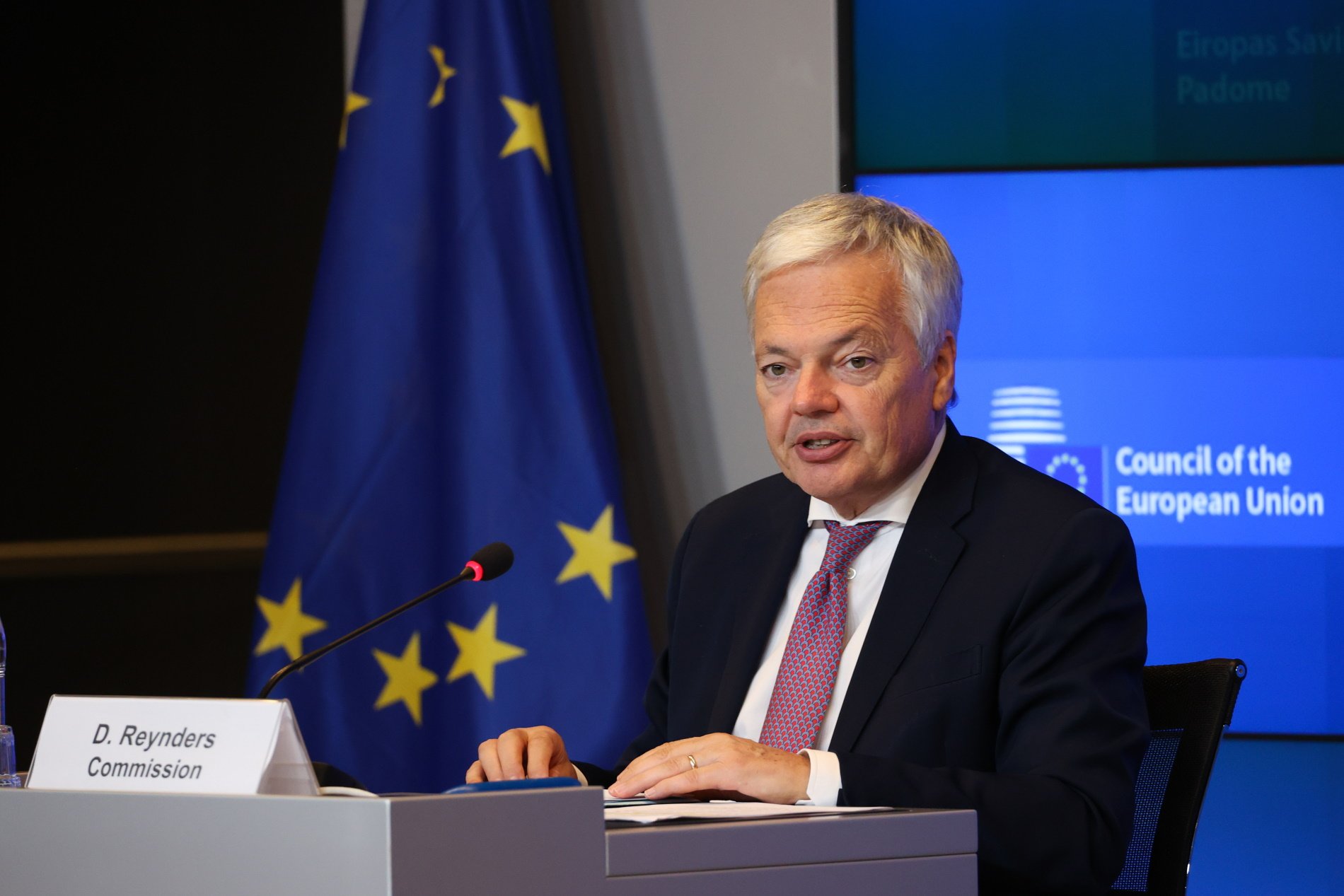The European Commission has asked the Spanish government for information on its proposed amnesty law, given the "serious concerns" that exist about it. The European Commissioner for Justice, Didier Reynders, has sent a letter to the acting Spanish ministers for the presidency, Félix Bolaños, and for justice, Pilar Llop, to request "detailed" information on the law that the Socialists (PSOE) are negotiating with Together for Catalonia (Junts) for the investiture of Pedro Sánchez as head of a new Spanish government. "I would appreciate it if you could provide me with more detailed information, notably as regards the personal, material and temporal scope of this envisaged law," the letter says.
Reynders conveyed the "serious concerns" generated by the possible amnesty law, which "has become an issue of considerable importance in the public debate". Thus, he has acknowledged that people have contacted Brussels about this matter - which is why he has now asked for "more detailed information, in particular on the personal, material and temporal scope of this envisaged law". "The European Commission remains committed to monitoring and upholding the fundamental values of the Union in all member states and will continue to work with the Spanish authorities to ensure respect for the rule of law," concludes the letter.
In previous European Commission statements on the proposed amnesty in Spain over independence process prosecutions, officials have made it clear that any such amnesty "is an internal matter for Spain and must be dealt with within its constitutional order".

A telling off for the Spanish judiciary
The MEP and general secretary of the Ciudadanos (Cs) party, Adrián Vázquez, came out quickly to celebrate what he saw as an "important move" by the European Commissioner. "Europe is already asking Sánchez for an explanation for the amnesty he intends to grant to Puigdemont and others responsible for very serious crimes. The work is paying off. We continue working," Vázquez said on social media X. Reynders did not say who contacted the EU executive on this issue, but the Cs reaction suggests that it was this Spanish nationalist party which brought the amnesty to the EU.
At the same time, the European Commissioner took the opportunity to give the Spanish government a telling off for the country's failure to renew the General Council of the Judiciary (CGPJ) - whose elected members' mandate has been expired for five years. The letter begins with Reynders criticizing that "no progress has been made in its renewal in spite of the urgency" and criticizing that "no steps have been taken to adapt the appointment procedure for its judges-members taking into account European regulations". "The Commission must reiterate its call on all parties involved to implement the recommendations made in the 2022 and 2023 Rule of Law reports." "Following the parliamentary elections in Spain, I am writing to you to insist on the need to prioritize the situation of the Council for the Judiciary and address it without delay," he states in the letter.

